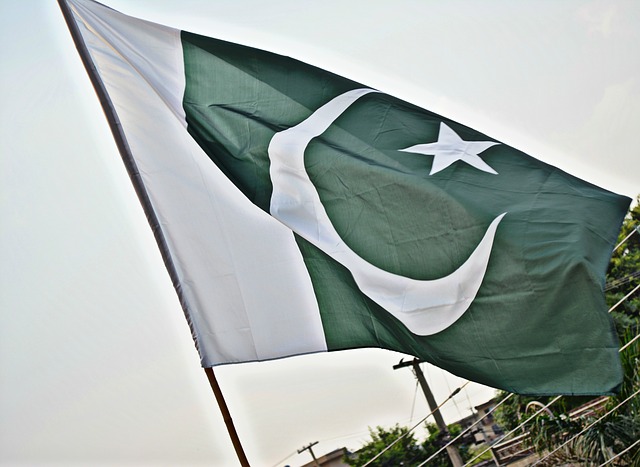
When President Trump
signed the executive order on 27 January suspending the country’s refugee program and restricting entry to the US for citizens from seven predominantly Muslim countries in the Middle East (Iran, Iraq, Libya, Somalia, Sudan, Syria and Yemen) Pakistani citizens became nervous. However, when Reince Priebus—the White House Chief-of-Staff—suggested during an
interview on CBS that Pakistan may be added to the list of countries, nervous titters morphed into full-blown agitation.
Although there has been no official Pakistani response to the ‘Muslim ban’, Pakistan’s interior minister Chaudhry Nisar Ali Khan was
highly critical of the new restrictions, stating that instead of helping the victims of terrorism, the ban would aid its perpetrators.
And while Mr Khan is certainly not the only person questioning the effectiveness of this temporary ban in preventing terrorist attacks on American soil, Pakistanis have good reason to be worried about their country being added to the ‘Muslim ban’ list. Despite years of counter-terrorism and counter-insurgency operations by its security forces, Pakistan is still crawling with terrorists who continue to wreak havoc domestically, in neighbouring countries and in the West. And given that the executive order was designed
‘to keep America safe‘, Islamabad wants to avoid giving the Trump administration any excuse to perceive Pakistan as a bad guy.
Accordingly on 31 January, the
Pakistani authorities put under house arrest Hafez Muhammad Saeed, a leader of the banned terrorist group Lashkar-e-Taiba (Let) and its alleged front, Jamaat-ud-Din (JuD), a religious charity organisation. While the reasons for his detention weren’t made clear by the authorities, Saeed—who’s considered the mastermind behind the 2008 terrorist attack in Mumbai, India which killed more than 166 people—has been allowed to roam freely in Lahore even though the US placed a
$10 million bounty for information leading to his arrest and conviction. Saeed is on the UN and US list of banned international terrorist groups. Even Pakistan has officially banned the LeT as a terrorist organisation since 2002.
Presumably, Pakistani authorities wanted to convey to Washington DC that Islamabad is also working hard in the fight against terrorism. But I don’t think too many will be fooled by Pakistan’s knee-jerk reaction—starting with the Indians
. Saeed has been arrested before, and released quite quickly afterwards. Saeed has a strong following in Punjab, Pakistan’s largest province, and influential religious parties, such as the Jamaat-e-Islami and Jamiat Ulema-e-Islam, are fully behind him. And abroad, he’s close to the Saudi religious establishment, having studied there and graduated from one of their madrassa (religious school). Saudi Arabia has built some 30,000 madrassas in Pakistan, confirming that the religious ties between the two countries are deep. And, given Saudi Arabia’s close strategic relationship with the US, that relationship gives Pakistan a voice in Washington.
To further prove its credentials as a reliable and trusted counterterrorism partner, Pakistan will make sure that Washington is aware that the Chief of Army Staff, Gen. Qamar Javed Bajwa,
declared to Afghan President Ashraf Ghani in mid-January that his troops had eliminated ‘all safe havens’ of terrorist groups on Pakistani soil. Those safe havens for the Taliban and other fellow ideological travellers have been probably the single most important impediment for the Western and Afghan forces to defeat the insurgents in Afghanistan. And although the Pakistan army has been conducting a military campaign against the Taliban and their allies for well over two and a half years in the tribal areas of Pakistan along the border with Afghanistan, it’s difficult to believe that all safe havens have indeed been removed.
According to credible media reports, Pakistani officials assert that Pakistan would reduce its cooperation with Washington in fighting Islamist militants, such as the Taliban, if Pakistan were to be added to the list of countries covered by the ‘Muslim ban’. And while Pakistan has been a difficult, and at times a duplicitous partner for the US in Afghanistan, it remains a critical player in the search for peace in Afghanistan. The bottom line is that no future peace agreement in Afghanistan will survive without the full support of Pakistan. And Washington knows that.
Accordingly, and because President Trump is going to have to make a decision soon as to what to do with the 8,500 US military personnel still in Afghanistan, it’s unlikely that Washington will add Pakistan to the extreme vetting list. So for the short-term, Pakistan seems to be off the hook. However, in the longer-term, the bilateral relationship may not always be as cosy. Trump hasn’t always considered Pakistan a ‘
fantastic country, with fantastic people‘, as he suggested during his telephone conversation with Pakistan Prime Minister Nawaz Sharif in December 2016. Back in 2012 he
demanded Pakistan apologise for ‘providing a safe sanctuary to Osama bin Laden for six years’ and questioned the value of Pakistan as an ally.
Pakistan’s leaders may well want to take advantage of this window of opportunity to once and for all cut its links with the various terrorist groups based in their country, whether the groups be Afghanistan or Kashmir-focused, and demonstrate that Pakistan’s a genuine friend of the US. Islamabad needs to remember that a bill declaring Pakistan a ‘terror state’ could soon land on President Trump’s desk for his signature.
President Obama didn’t support such a bill. However, PM Sharif cannot be sure that President Trump would be as tolerant as his predecessor.
[6] . Saeed has been arrested before: https://www.washingtonpost.com/world/asia_pacific/pakistan-fearing-us-visa-ban-cracks-down-on-militant-group/2017/01/31/31412514-e7bb-11e6-903d-9b11ed7d8d2a_story.html?utm_term=.bfbdca03ddc9
 Print This Post
Print This Post